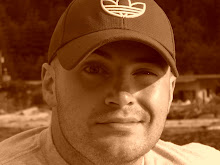OR: Voodoo, Zombies, Santeria, and the Wide Sargasso Sea
When most Westerners think of the Caribbean, we think of white sandy beaches, steel drums, picturesque sunsets, rum barrels, pirates, and maybe Usain Bolt. A fixture on “Travel Channel” and “E!’s Wild On” programming, the Caribbean islands are framed as an exotic getaway, not a place of mystery and witchcraft.
Before reading this novel, I had never heard the term “Sargasso Sea” to describe the Caribbean region. After our discussion in class, it became apparent that Rhys used “Sargasso Sea” instead of “Caribbean Ocean” specifically because she wanted to avoid the imagery presented above, and instead evoke mystery and darkness. The Sargasso Sea is strange, dangerous, and vast. A Gothic novel set in the Caribbean? It actually works quite well.
The Caribbean has always had this relaxing, fun-loving façade, but with that comes a history of un-orthodox religious practices and a belief in the supernatural. WorldWide Religious News, a website that compiles news stories from around the web and categorizes them by religion and world region, has a ton of interesting articles on the Occult in the Caribbean (see the bullet points on the right), and how it is still thriving to this day.
The relationship between Voodoo, zombies, Santeria, and the Caribbean is actually quite fascinating. At the essence of all three is the fear of losing one’s free will. This is poignant when you realize that they began as systems of beliefs for African-Caribbean slaves. A slave was always fearful of losing control of his or her soul. It makes sense to think that by taking people from Africa to the islands, then treating them as property and forcing them to work, Westerners created this idea that Caribbean slaves had a tenuous grasp on their own souls. And it is very sad.
This idea relates perfectly to Wide Sargasso Sea, because the reader is always mindful of Antoinette’s impending insanity. Antoinette, in effect, loses her ability to control herself, which is the foundation for the beliefs of the Caribbean occult. The fact that she is not a slave reinforces the idea that all of us have a tenuous grasp on our humanity, no matter what social position we find ourselves in.
My opinions and assigned writings on all things literary, done Hammer-style.
Subscribe to:
Post Comments (Atom)

I enjoyed your discussion on voodoo and zombies in relation to Wide Sagrasso Sea. I have not really thought about the supernatural side of the story. I also didn't notice the connection between Antoinette's situation to the beliefs of the Caribbean occult.
ReplyDeleteFunny that we both went to the supernatural ideas within WSS. The link you provided was really interesting. You have tied Antoinette in with these beliefs. I haven't quite made it that far, so I'm interested to see what's to come.
ReplyDeleteIn reading your last sentence the two words "slavery" and "Antoinette" caught my eye. While she certainly was not a slave in the traditional sense, the fact that she ultimately becomes a slave within her marriage and through drug addiction stood out to me. While it is obviously symbolic I hadn't thought of this till reading your blog.
ReplyDeleteWell, technically there isn't a Caribbean Ocean, so there's that. :) But yeah, the Caribbean is for sunny island getaways! What's with the occult? It does make a good gothic setting.
ReplyDelete